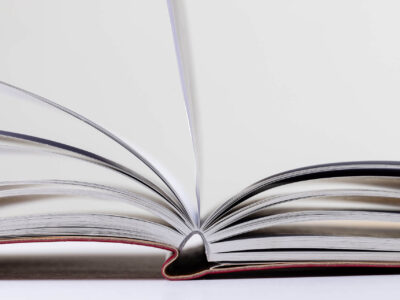ISBN Explained
An ISBN or Internal Standard Book Number, is a 13 digit unique identifier used to distinguish one book from another. A lot like a barcode on a product, it provides a reliable way for publishers, bookshops and libraries to order and catalogue book titles. Every format or edition of a book requires its own ISBN.
An ISN is a crucial part of making a book widely available. Without an ISBN most retailers will be unable to stock or distribute the title as they use ISBNs as the key point of reference.
Can Print2Demand supply me with an ISBN?
Yes, we have an account with the ISBN Agency. In the process you would register as distributor and all orders would come directly to you. Print2Demand then registers as the publisher which is legally required with Neilsen.
The requirement is to supply seven copies of your finished book. Of which six must be sent to the Legal Deposit Libraries. The other to The British Library. So these must be sent on completion of the print order of your title.
If Print2Demand supplies the ISBN we can despatch these for you from your ordered quantity. We charge £150.00 for the supply and registration of an ISBN.
How To Register an ISBN Number
1. Purchase an ISBN
You can purchase an ISBN number through a designated agency. In the UK, this can be done through P2D Books Ltd or the Nielsen ISBN Agency. You can typically buy them individually or in blocks. Buying ISBN numbers in blocks is usually cost effective if you plan to publish multiple books or release different formats.
2. Register the ISBN and provide essential metadata
Your ISBN agency will be able to guide you on the registration process and required metadata. This typically includes:
Book title: As exactly presented on the title page. No abbreviations.
Authors name: Only those listed on the title page
Publisher name: The name of the publisher or the one you choose at the time of purchase
Format or binding: Is it paperback, hardback? Is it an ebook? etc
Publication date: Including at least a month and year. It can be an approximate if necessary
Retail price
Number of pages
Short description: The blurb is usually ok
Category: Is it fiction or non fiction?
From cover image: For printed books
3. Keep your ISBN information up-to-date
If your contact details or any other relevant information changes, you should notify your ISBN agency in writing.
4. Ensure the ISBN and barcode are correctly integrated into your book’s design
The ISBN and barcode are usually placed on the lower portion of the back cover and copyright page.
The ISBN barcode should be around 2 inches wide, 1.2 inches tall. It’s crucial the barcode is printed with a solid white background and is positioned at least 0.25 inches from the spine and trim of the cover.
5. Fulfill legal deposit requirements
In the UK you are required to send one copy of your printed book to the British Library within one month of publication.
You are also obligated to send copies to the other legal deposit libraries, ALDL (Agency for the Legal Deposit Libraries).
Important considerations
Different book formats require seperate ISBNs: Each format of your book (hardback, paperback, ebook etc) need different ISBNs, along with new or revised editions.
Self publishing: Each ISBN has to be registered with a publisher name. Purchasing your own allows you to use your own publishing name.
Metadata is crucial for discoverability: Providing accurate metadata will ensure bookstores, libraries and online platforms can identify and list your book correctly.
Maintain a master spreadsheet: If you have multiple ISBNs registered or intend to buy more you should keep organised records of each one along with release dates and formats.
What is Legal Deposit?
The Legal Deposit for published books, journals, and magazines. All titles will deposit at the designated Legal Deposit libraries. Since 1662 this obligation has been English law.
The British library have the right to receive legal deposit copies. In addition 5 other libraries are also entitled to ask for a free copy of any new titles. These are: The Bodleian Library. Cambridge University Library. The National Library of Scotland. The National Library of Wales and The Library of Trinity College, Dublin.
Furthermore please visit The British Library’s website.
Need More Assistance?

Text File Prepartion
For those looking to produce print ready files yourself. Learn how to produce a print ready PDF for book printing.

Book Writing Templates
We've created a series of book writing templates for Microsoft Word. Select the right one to fit your book size.

Book Binding Methods
Deciding on which book binding method is most effective and appropriate for your book is not always straightforward.
Related Articles

What's An ISBN Number?
This number is universally used to identify, order, track and list one-off publications worldwide.
